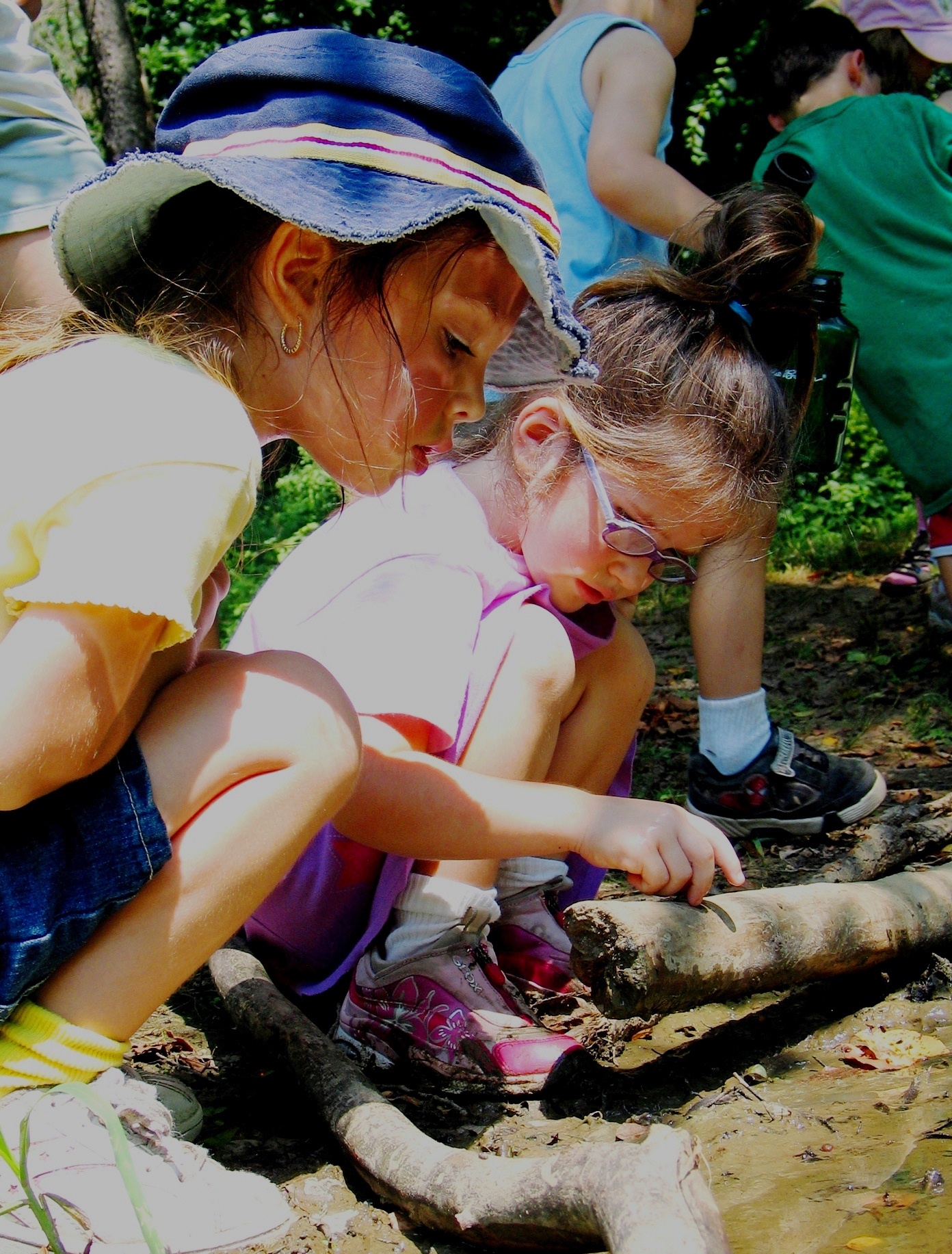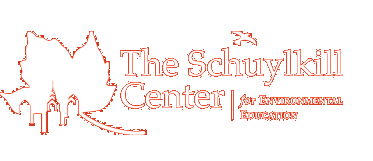Gail Farmer, Director of Education
I was born in 1975, part of Generation X, probably the last generation whose parents felt comfortable sending their kids out into the neighborhood after school. “Go outside and be back by dinner,” was a common directive from my mother. My street ran along the bottom of an undeveloped hill, and “The Hill” was where my sisters and I went when my mom sent us outdoors. My childhood was also filled with Girl Scouts, dance classes and community soccer, but my best memories and my most formative experiences come from the times my mother wanted nothing more than to get me and my sisters out of her hair for a few hours.
 Unlike more structured activities, The Hill was totally open to our interpretation and needs: it was a place where we could try to make sense of the complex world in which we lived by reconstructing it on a much smaller scale. The Hill had scary places (“the swamp”) and refuges (“rainbow rock”). On The Hill we were sometimes brave explorers discovering new lands and other times victims in need of rescue. The Hill was whatever we needed it to be.
Unlike more structured activities, The Hill was totally open to our interpretation and needs: it was a place where we could try to make sense of the complex world in which we lived by reconstructing it on a much smaller scale. The Hill had scary places (“the swamp”) and refuges (“rainbow rock”). On The Hill we were sometimes brave explorers discovering new lands and other times victims in need of rescue. The Hill was whatever we needed it to be.
A growing body of research in early childhood development is revealing the critical connection between this type of exposure to nature and the developing brain. Children who spend immersive time in nature (not just outdoors on the basketball court or playground, but in nature), tend to be less anxious and better able to focus, and to have fewer health issues and more emotional resilience, than children who don’t. (Learn more at http://www.childrenandnature.org/documents/C118/.) The challenge in our increasingly urban environment is: how do we provide very young children with the kind of immersive exposure to nature they really need?
The Schuylkill Center is keenly aware of this challenge, and already offers opportunities for nature play in many of its programs. Now we are adding another path for children in the critical early years of development: we are opening a “nature preschool.”
The Schuylkill Center Nature Preschool will provide Philadelphia children with regular opportunities for direct contact with nature, on a daily basis and across the seasons—in a risk-managed environment. Our classroom will open directly into our nature preserve, so students can jump into forests, streams, ponds and meadows. They will grow and plant trees, rear tadpoles, catch butterflies, and generally just be outdoors in all seasons.
Although our preschool is the first of its kind in Pennsylvania, there are more than a dozen nature preschools across the country, and we are modeling our program on the best practices of those schools.
For more on Nature Preschools, visit: http://www.greenheartsinc.org/Nature_Preschools.html. Green Hearts founding director, Ken Finch, will be at the Schuylkill Center January 10, 2013 to present the 2nd annual Dick James Lecture: Go Outside & Play! Restoring the Nature of Childhood. If you’re in the area, come check it out!

I could not agree more with your comments thank you. What I can’t seem to understand is why or where all this scheduled play came from? Evidence just doesn’t add up that everywhere is unsafe for our kids. So why have we moved them inside and into such scheduled lives?
Hi Rena. I’m not sure where all the scheduled play came from, but nature as unsafe has been increasing over the last few decades– stranger danger is one issue; ticks another; technology a third (inside is where the plugs are!). Helicopter parenting is yet another force… Lots of issues conspire to pull kids indoors.
This is so exciting — our family is really looking forward to learning more. My wife and I have learned about so-called “forest schools” in Europe in the last couple of years, and have always wanted access to this kind of learning environment for our kids. Here’s a short documentary on a forest kindergarten in Switzerland, which we find inspiring:
@ Rena: All this scheduled play? The institutionalization and regulation of how we live becomes more and more pervasive, so of course this encroaches upon the last remnants of personal freedom and play — childhood. Ivan Illich (http://en.wikipedia.org/wiki/Ivan_Illich) offers a thorough description and critique of this over-institutionalization in two of his books: Tools for Conviviality and The De-schooling of Society. You might find them interesting.
Apologies to Rena and Jeremy for the delay in posting your comments. We had a technical glitch. Thanks for reading!
I would love to volunteer for your organization. I am a very active person and love to work with children . I recently moved into society hill from the suburbs and would love to do some volunteer work now that my children are grown . Please contact me., Diane Swartz 6097064126 or dbfitrun@aol.com
Hi Diane,
Thanks for contacting us – we love volunteers! The best thing to do is send an email over to Claire Morgan, our Volunteer Coordinator. You can also see details about our volunteer opportunities here: http://www.schuylkillcenter.org/volunteer/
Best,
Anna
PR Manager